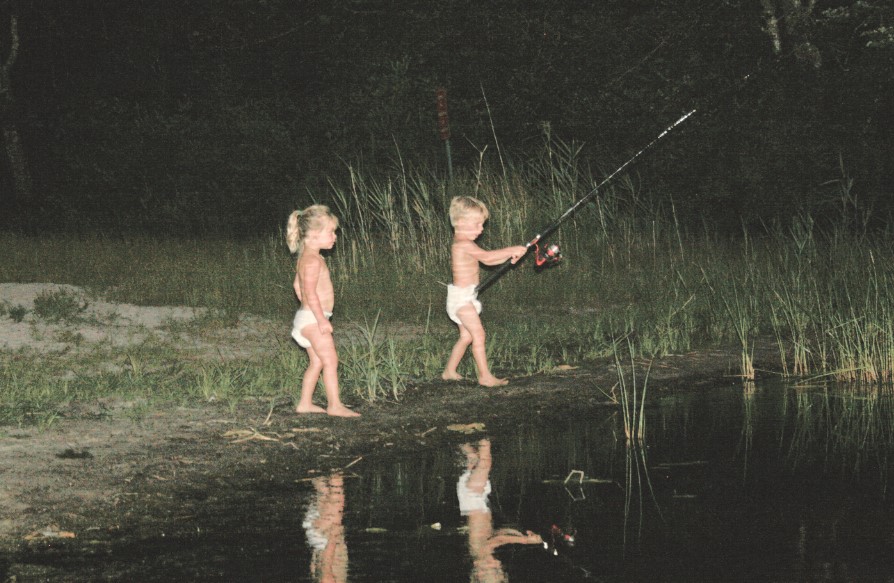

What do we do without the skills from Scouting?
"Do you remember being a scout, Girl Scouts, Boy Scouts, or 4-H? I was a Girl Scout leader and scout for several years and loved it. I was always excited to share with my girls the wisdom my years had taught me, such as sewing, DIYs, fire starting, gardening, camping, and more. When I was in scouts, we all loved learning new skills and camping. We went on incredible adventures and hiked through the woods to identify plants and foliage. We would collect firewood and start a campfire to cook dinner. To this day, nothing is more delectable than campfire potatoes and corn! (See articles for recipes). I remember fondly the smell of that fresh, clean air and the scent of the sleeping gear. It's weird, but I loved those scents.
I was spoiled, as my mom was our leader, and the troop I was in were all my besties. Every trip or adventure we went on was in the name of Girl Scouts and earning a badge. My vest was full! I stayed in until about 16 or 17. Boys got in the way of us young ladies focusing. lol
Since Scouting is far less prevalent now, we need alternative approaches to teach our children outdoor and general survival skills. How can we ensure that future generations recognize the importance of these skills? How does the lack of outdoor and survival skills education affect children's development? Are there any new technologies or methods that can be used to teach these skills? What role can parents play in teaching outdoor and survival skills to their children? Should our children still be taught skills like sewing, fire building, outdoor cooking, fishing, plant identification, and the many life skills taught in scouts?"
Why encourage Scouting?
There are plenty of ways to teach life skills to children outside of Scouting. Life skills can be taught through various activities, such as household chores, hobbies, sports, and volunteering. For example, household chores can teach children responsibility, time management, and organization, while team sports can teach children teamwork, communication, and leadership.
However, Scouting provides a unique opportunity for children to develop essential life skills in a structured and supportive environment. Scouting offers diverse activities that promote learning, growth, and self-discovery. The skills children learn in Scouting, such as self-reliance, leadership, and community involvement, can be challenging to replicate in other settings.
Learning these life skills is incredibly important for children preparing for adulthood. These skills lay the foundation for success in both personal and professional life. For example, self-reliance and individual accountability are critical for children's future independence and success in the workforce. Leadership and teamwork are essential for building positive relationships and advancing one's career.
In conclusion, while there are plenty of ways to teach life skills to children outside of Scouting, Scouting offers a unique opportunity for children to develop a broad range of essential life skills in a supportive and structured environment. These life skills are critical as they lay the foundation for success in both personal and professional life. Are you looking for a way to help your child develop essential life skills that will benefit them for years? Look no further than scouting! Scouting offers an array of critical life skills your child can use in various aspects of their life. From outdoor skills like camping, hiking, and cooking to leadership and team building, Scouting is an excellent way to help your child develop crucial abilities.
One of the most essential skills that children learn in Scouting is self-reliance. It has never been more critical for children to learn independence and care for themselves. Scouting encourages children to take responsibility for their actions, solve problems independently, and develop a sense of personal accountability.
Leadership is another essential skill that children learn in Scouting. Scouts learn to lead by example, communicate effectively, and work collaboratively. These skills are vital for success in both personal and professional life.
Furthermore, Scouting provides children with a sense of community and belonging. In today's world, where isolation and disconnection are rampant, Scouting offers children a chance to be part of a group where they can make friends, share experiences, and learn from one another.
Finally, Scouting allows children to step out of their comfort zones and try new things, which can be incredibly valuable for kids who are shy or hesitant to take risks. Scouting encourages children to take on challenges, try new things, and push themselves to be their best.
Overall, Scouting is an incredible opportunity for children to develop essential life skills that will benefit them for years. If you want to give your child the best chance at success in life, I highly recommend scouting.



